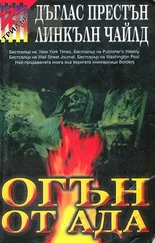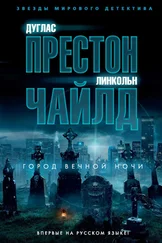Baugh had gone even paler. God only knew what he must be feeling. Perelman, for his part, felt sick to his stomach. The story reminded him of what he’d been forced to do to Sligo — something he would never get over as long as he lived.
A vast silence gathered in the room. Baugh seemed unable to speak.
“Commander,” Pendergast said in a quiet voice. “Over the course of my career, I’ve dealt with many murderous and psychotic human beings. But I have rarely seen anything as abhorrent as this cold-blooded, deliberate murder of a trusting and innocent horse, merely to satisfy your inflated ego.”
Finally, Baugh opened his mouth and managed to croak out: “What... are you going to do with those?”
“First, I will state my requirements. You will allow me to continue my investigation as I see fit, with your full cooperation. You will immediately rescind your termination of Dr. Gladstone’s involvement in the case and issue her a letter of apology, along with a check for $101.25 to pay for the buoy Lieutenant Lickspittle — I mean Duran — intentionally damaged. You will have no further contact with Dr. Gladstone. You will maintain the compartmentalization that I have created so that the mole on your staff no longer has access to information on my activities. Pursuant to that, I will tell you nothing of my work... and you will not inquire.”
The man’s mouth worked a little before the phrase all right emerged.
“As for the affidavits, I will keep them in a safe place in case further problems arise.”
He rose. Perelman did likewise: he couldn’t wait to get the hell out of there. Pendergast had left the commander a quivering, heaving wreck.
Pendergast turned to Darby and said, in a suddenly loud voice: “Why, Lieutenant, you haven’t taken any notes! Shame on you!”
And with that he strode out of the office, Perelman following. They got into the car. Perelman crawled rather than hoisted himself into the passenger seat, taking deep breaths. He had never seen a confrontation like this before — so cold, so efficient, and so devastating. “Man, you play rough ,” he finally said.
“It is not play,” said Pendergast. And only then, he allowed a small smile to crease his austere face. “Let us find a place with fresh stone crabs. Cracked cold, with mustard sauce. I have worked up quite an appetite.”
The morning bus from Acatán to the Mexican border was overloaded and stank of diesel fumes, and it had taken two hours to lurch and grind the twenty-five miles. At a sad border station it made a groaning stop, where everyone had to get off, show their papers to a Mexican border patrol agent, and get on another, but equally decrepit, bus that lumbered along the highway for another hour.
Finally, with a chuffing of brakes, the bus pulled into the town of La Gloria, Chiapas State, in southern Mexico. Coldmoon was the only one to exit, and no wonder, he thought as he looked around at the isolated town, with its limp palm trees and dust-caked bushes lining the dirt roadway. He slung his backpack over his shoulder as the bus pulled away. The driver had kindly let him off in front of Del Charro, at the outskirts of town, with its lone blinking neon light advertising Olmeca beer in the window, and the faint sound of ranchera music filtering out. He crossed the street and the parking lot outside the bar, almost empty at this time of day, and pushed open the door.
Inside, it was blessedly cool, and it took a moment for Coldmoon’s eyes to adjust to the dimness. There was no one within except the bartender and a teenage boy sitting on a barrel at the far end of the bar.
Coldmoon sauntered over, took a seat at the bar.
“What would you like, señor?” the bartender asked in Spanish.
“Olmeca, please.”
The bartender, a friendly-looking man with a colorful striped shirt and a cowboy hat, brought over the bottle. “Glass?”
“Just the bottle, thanks.”
He put it down and Coldmoon took it up. “You wouldn’t happen to be Señor Corvacho, would you?”
“I am.”
This was encouraging. “I’m looking for a friend.”
“And who might that be?”
“He calls himself El Monito.”
At this Corvacho seemed to go still, and he said, just a little too quickly, “Never heard of him.”
Coldmoon nodded. He took a sip of his beer — ice cold, surprisingly — while Corvacho made a show of wiping up the bar around him. Coldmoon could see the man had been deeply alarmed by the question and was trying to cover it up.
As he sipped the beer, Coldmoon considered what to do next. He could offer the man money, but he sensed somehow that would only frighten him more. Sometimes, he thought, the truth — or something close to it — worked better than an elaborate lie.
“I’m trying to find someone,” Coldmoon said, “came over in December from San Miguel Acatán, part of a group heading north to the U.S. Martina Ixquiac.” He took out a photo of her, given him by Ramona. “She disappeared and I’m trying to find out what happened to her.”
Corvacho barely glanced at it. “Don’t know anything about her.”
Again, the answer came too quickly.
“Look, friend, I’m working for her family, who are worried about her. I’m just trying to find her. I really need your help.”
“As I said, señor, I have never heard of this man, and I don’t know anything about the group you are talking about.” His voice shook from fear. “I’m sorry I can’t help you.” He finished up his nervous wiping and quickly disappeared into the back.
Christ , thought Coldmoon, he’s going to call El Monito now and warn him.
But then, through the bar’s window, he saw the bartender come around the corner of the bar and climb into an old pickup. He was going to warn him in person. And Coldmoon had no car, no way to follow. Coldmoon swore under his breath; El Monito was either going to make a run for it — or, just as likely, assemble a gang to return for a fight.
But as he watched, the truck didn’t leave. The man, it seemed, was trying to start it. A moment later the bartender got out and slammed the truck door, and Coldmoon could hear him coming into the back room behind the bar and rummaging around — with the rattle and clink of tools.
Sensing an opportunity, Coldmoon slipped off the stool and quickly went outside into the parking lot. The truck was a single cab, nothing in the back, no way to hide unless he could hang on to the chassis underneath — which would be suicide on these potholed dirt roads. What to do? The bartender would be back out any moment. There was one thing: a long shot. He peered through the cab window and made a mental note of the exact mileage on the odometer.
Then he ducked into the bar just as the bartender came back out to the parking lot with a couple of tools in his hand. He threw open the hood, messed with the battery cable, slammed it, got back in, started the engine with a roar, and peeled out of the lot in a cloud of dust.
Coldmoon checked his watch. “Another beer,” he said, signaling to the boy.
The boy shook his head. “Not old enough to serve beer.”
“Right,” said Coldmoon. “Sorry. Can you recommend a hotel?”
“There is only one, señor. Next to the plaza, the Sol y Sombra.”
“Thank you.”
Exactly thirty-two minutes later the bartender was back. He came in, red-faced and flustered. “You still here?”
Coldmoon gestured. “How much?”
“Fifty pesos.”
He put some money on the bar and left. As he passed the truck, he noted the odometer again, did a quick mental subtraction. The truck had gone 18.4 kilometers. He also made note of the nearly bald tires with just a hint of zigzag tread left.
Читать дальше
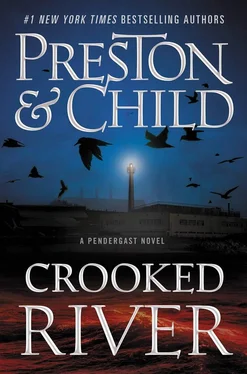
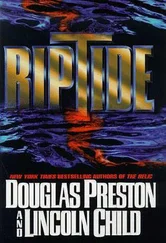
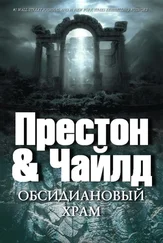
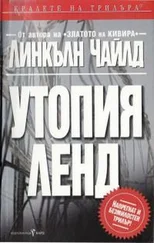
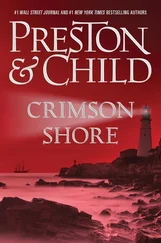
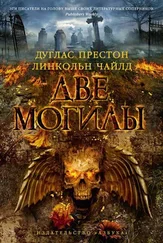
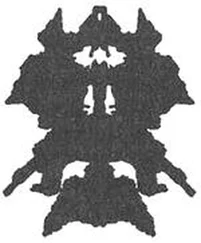
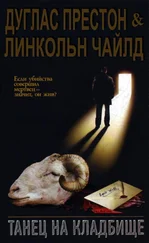

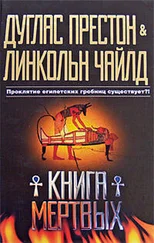
![Линкольн Чайлд - Стихи для мертвецов [litres]](/books/396536/linkoln-chajld-stihi-dlya-mertvecov-litres-thumb.webp)
